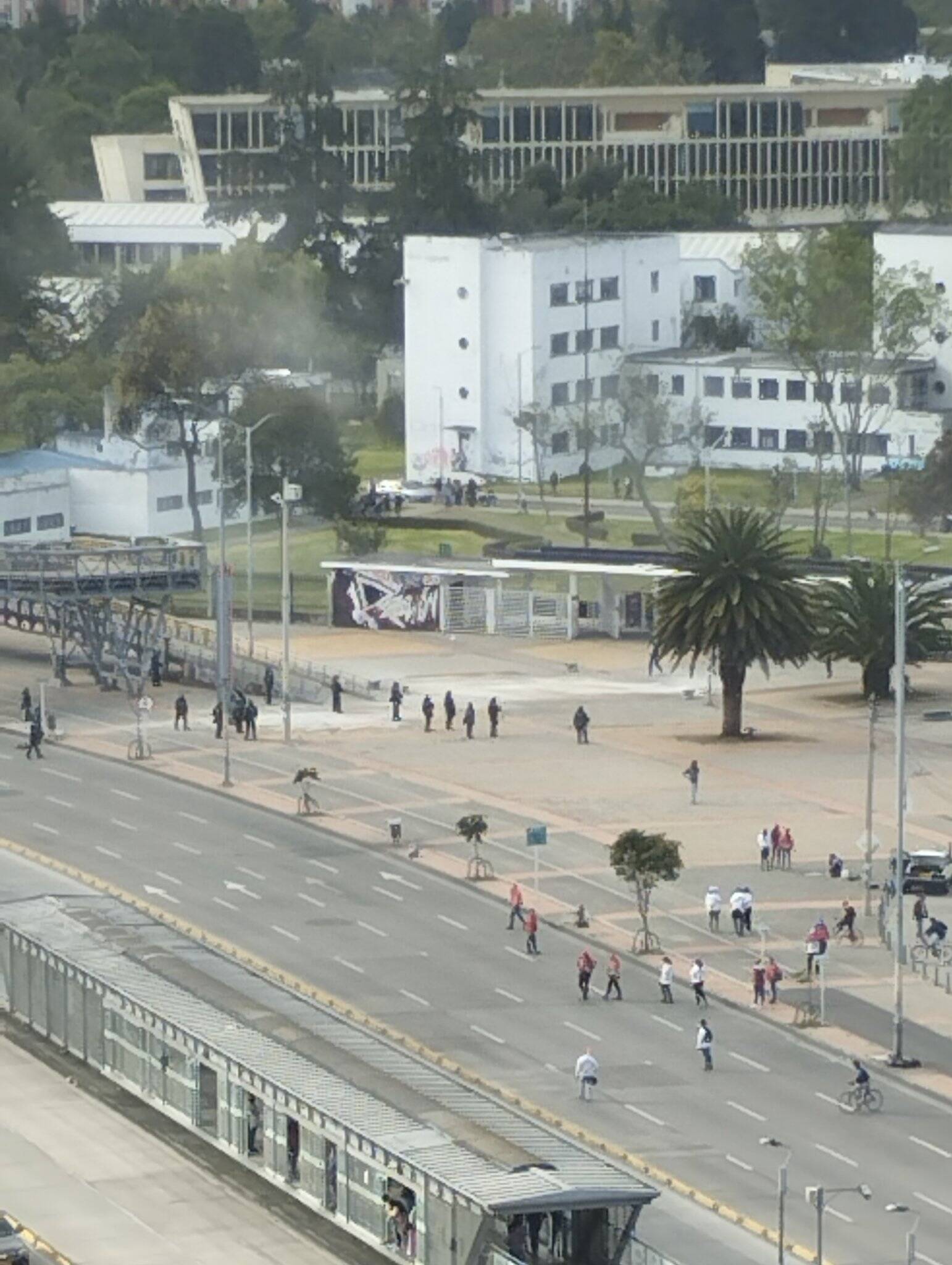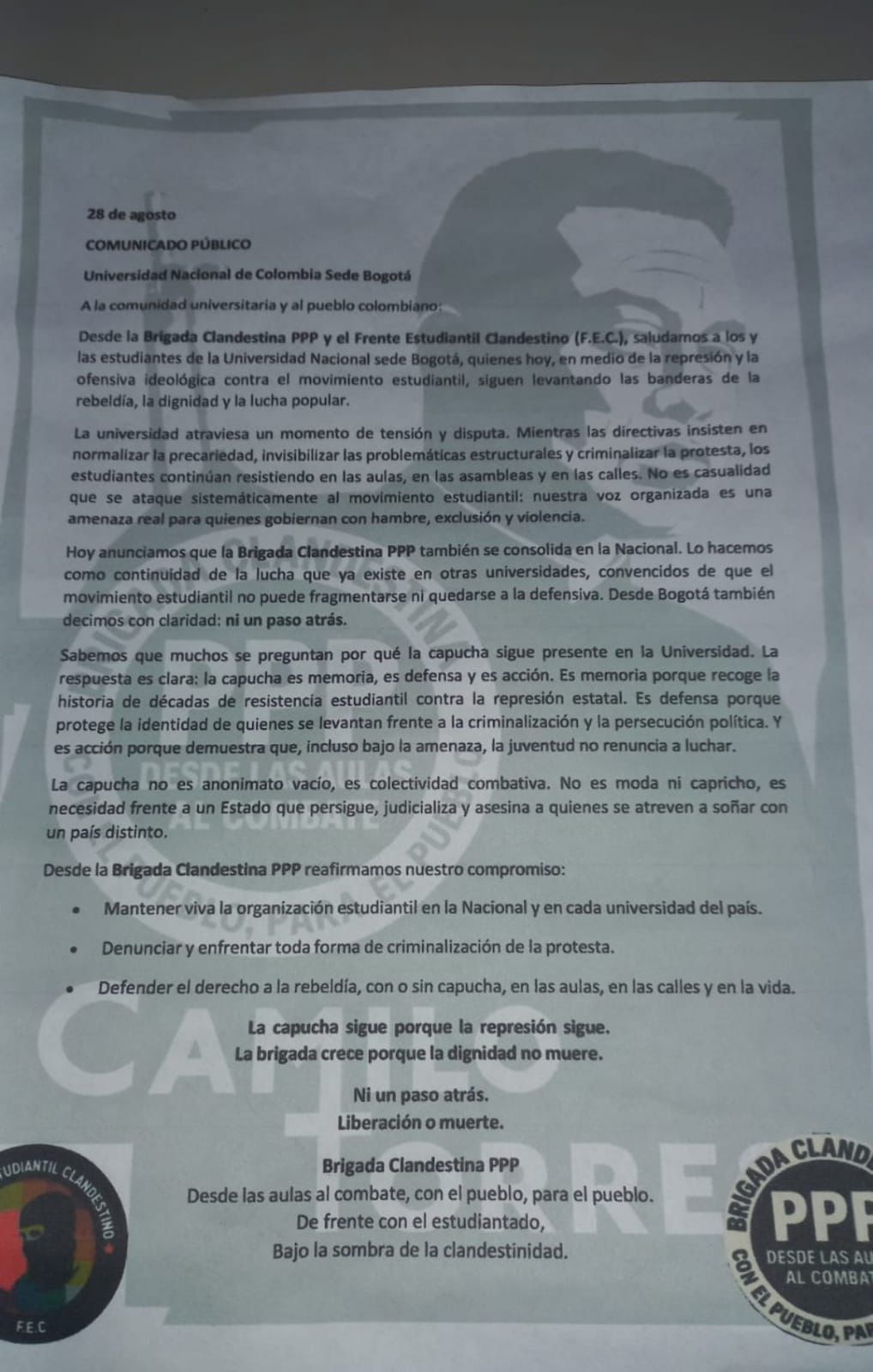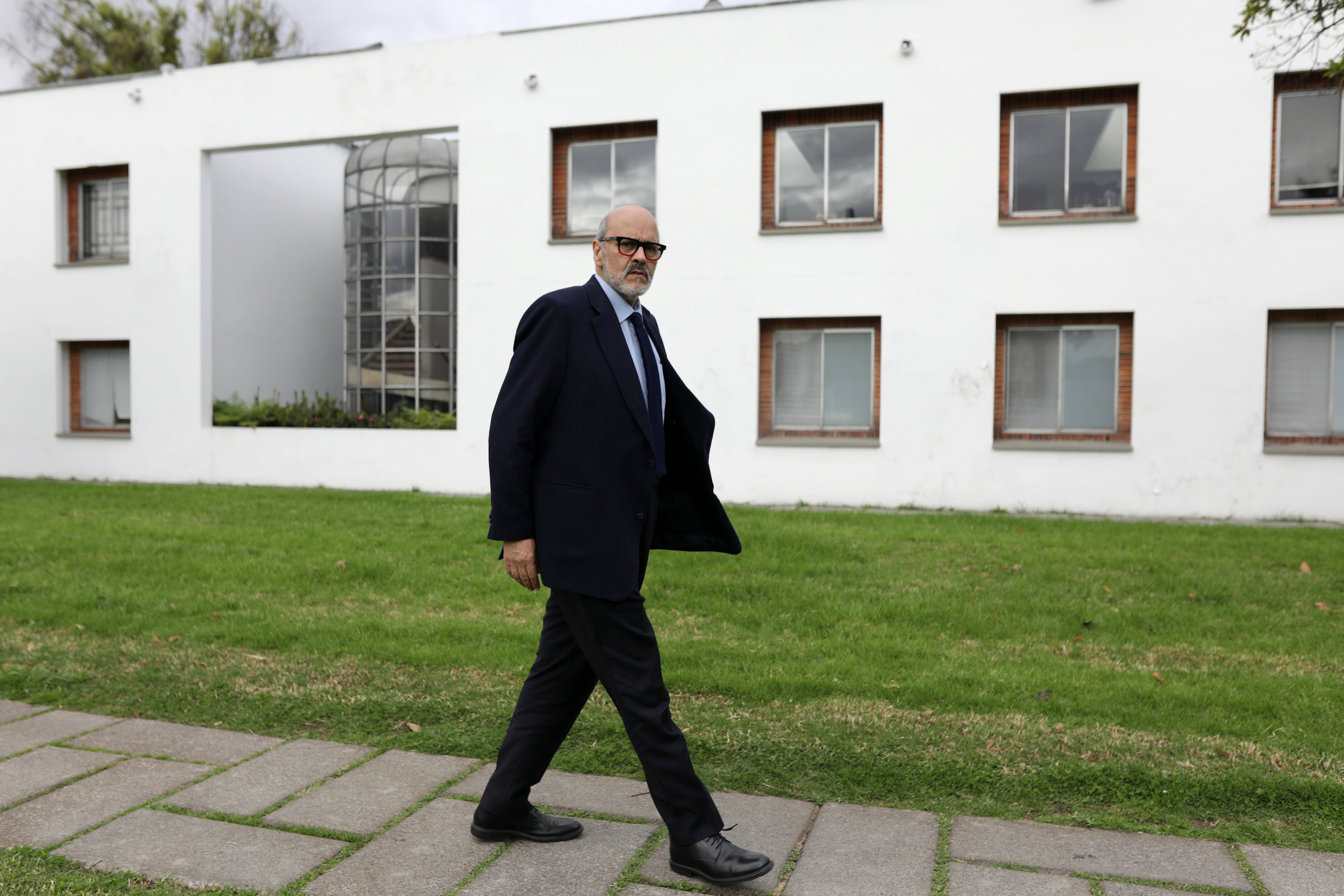UNAL student leader speaks about the violent incidents on campus: 'Since 2020, we have seen an increase in unrest.'

In recent months, it has become customary for Thursdays to witness protests at the National University of Colombia (UNAL), and yesterday, August 28, was no exception.
At around 11 a.m., around 15 hooded individuals violently took over the buildings of the Faculty of Sociology and the Humanities Classrooms, located near the exit to 26th Street in Bogotá. As a result, one person was injured and treated by university personnel, according to reports.
Regarding this, Ronald Felipe Vargas Sánchez, a graduate student representative at this university, comments that the school's facilities had to be evacuated because the clandestine groups involved in the protests used knives and explosives. Therefore, the administration, led by professors Leopoldo Múnera and Carolina Jiménez, has been invited to speak out clearly and forcefully.
"We've experienced increasingly constant unrest. In the 1980s, the very situation of the country's armed conflict brought a lot of unrest to the university. However, that had ceased in recent years, but since 2020 we've seen an increase in violent unrest. These events went from being sporadic to occurring almost weekly. We've even had weeks where riots broke out twice inside the university, with unintelligible flags, without knowing which group they belong to or what their objective is. It seems like they're just coming to hang out," Sánchez tells EL TIEMPO.

Demonstrators protest in front of the National University Photo: Taken from X: @NavasHerney
Part of what has happened at UNAL includes the circulation of pamphlets by groups of hoodlums, and yesterday one circulated on campus belonging to a group called the Clandestine Brigade PPP, which says:
"The university is going through a time of tension and dispute. While the administration insists on normalizing precariousness, obscuring structural problems, and criminalizing protest, students continue to resist in classrooms, assemblies, and the streets. It is no coincidence that the student movement is systematically attacked; our organized voice is a real threat to those who govern with hunger, exclusion, and violence."
This is because, according to the representative, it is no secret that public universities have been experiencing serious precariousness for more than 30 years.
"Despite the financial efforts following the 2018 strike and the current budget increase, we continue to face deficits in teaching staff, welfare, and support for vulnerable students. Nearly 87% of the National University's population belongs to social classes 1, 2, and 3. But the truth is that these forms of violence do not help make the causes visible; on the contrary, they hinder them. Actions end up taking a backseat because there are evictions, suspension of classes, and the impediment of academic discussion," he says.

PPP Clandestine Brigade Pamphlet Photo: Courtesy
The PPP Clandestine Brigade is a group that also demonstrates at the National Pedagogical University and the Francisco José de Caldas District University. Even so, yesterday, August 28th, was their first appearance at the UNAL headquarters in Bogotá. "These groups appear overnight, and explaining them is very difficult. Some proclaim themselves as Bolivarian revolutionary movements, others with absurd names. We have many clandestine collectives with similar uniforms, which makes it difficult to distinguish them," concludes Sánchez.
UNAL has not commented on the matter, and according to the representative, it has not taken any action in the past. Sánchez understands that the administration has many limitations in dealing with these types of groups, but even the number of messages rejecting them has decreased. For example, yesterday there was an order to evacuate the university starting at 4 p.m., affecting classes, cultural and sports activities, and there has been no statement from the vice-chancellor's office or the rector.
For the student, this also demonstrates the need for institutional coordination with the National Government, the Mayor's Office, and the Ombudsman's Office to address the issue. This requires ensuring that the campus is not militarized, as universities are spaces for reflection, research, and culture, and public access cannot be restricted, but controls can be established to prevent these situations.

Leopoldo Múnera, rector of the National University. Photo: César Melgarejo/El Tiempo
"It's difficult to identify who these groups are, because they take advantage of moments to break cameras and damage any security mechanisms the university has installed . Today, these actions generate stigma toward the student community, when in reality those who do this are not students or are a marginalized minority," explains Sánchez.
Despite the constant unrest at UNAL, the representative admits that he doesn't believe anything similar to the National Strike that took place in November 2021, when former President Iván Duque was in charge, is brewing. "What happened back then was the expression of a repressive state against social mobilization, which legitimized these violent groups. Today, the government has greater tolerance toward social movements, regardless of their political leanings. That has lessened the repression, and although the ESMAD (National Anti-Money Laundering Service) still exists, the atmosphere isn't as heated as it was then. This doesn't mean the current situation isn't serious, but it is different," Sánchez concludes.
eltiempo



